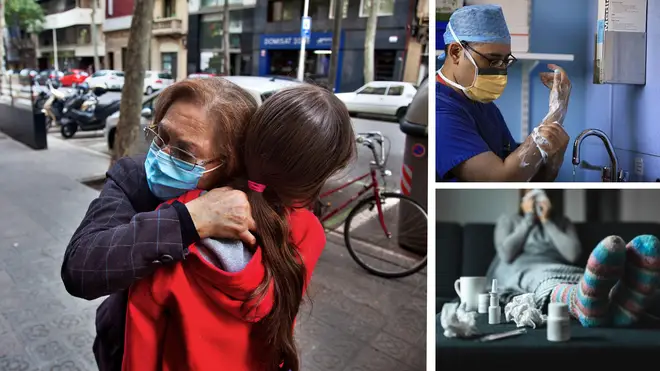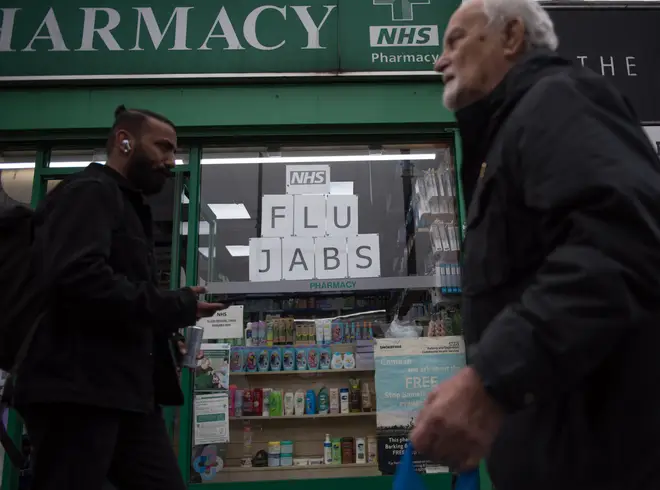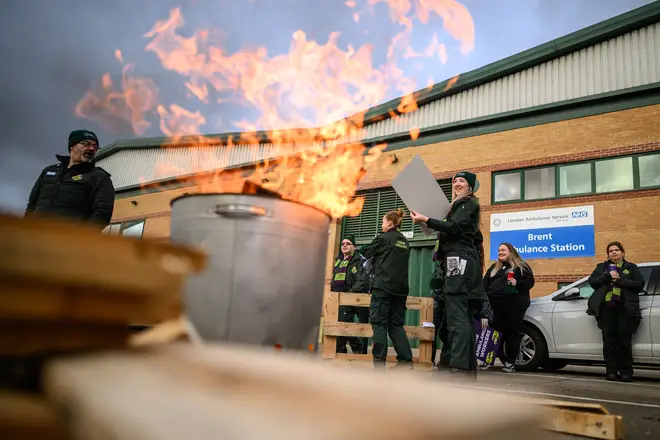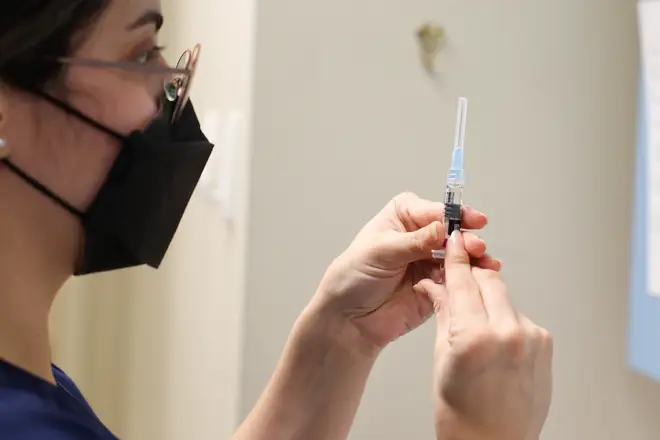
Oli Dugmore 4am - 7am
23 December 2022, 12:58

Anyone suffering from a cold or cough should avoid their elderly relatives this Christmas, health officials have warned, as a wave of winter viruses continues to plague the country.
Flu cases have spiked in recent days, with health officials blaming the first Christmas since Covid restrictions were fully lifted, as well as a sharp drop in temperatures that means more people are socialising indoors.
And against the backdrop of ambulance workers and nurses striking as well as general NHS staff shortages, health leaders have warned this could be the "darkest" ever winter for the health service.
Healthcare workers have said that if people have any doubts about possibly passing on a bug, it would be better to stay away from vulnerable people this Christmas.

NHS GP Phillippa Kay told the Sun: "Although we have all been looking forward to the holidays for a long time, in view of the pandemic, it is still important not to spread infections, be it Covid, flu or another bug
Sadik al-Hassan, told people visiting vulnerable relatives to take extra safety measures to protect them.
He said: "Use hand gel before and after the visit and wear a face mask if you can.
"And if you are a little under the weather make sure you have plenty of fluids, rest, vitamin C and D."

It comes after the number of flu patients in English hospitals has "skyrocketed", sparking warnings that this season could be worse than pre-pandemic years.
An average of 1,939 people with flu were in hospital each day last week, up 67% on 1,162 the previous week, according to NHS England data.
There has also been a surge in the number of flu patients in critical care beds, with the daily average standing at 149 last week, up 72% from 87 the previous week.
To put the growth of cases into perspective, at the same time last year the NHS had only two flu patients a day in critical care and 32 in general hospital beds.
The Department of Health and social care blamed lockdown restrictions during the pandemic, combined with the recent cold snap, for the flu surge.

“Covid restrictions kept flu at bay in previous seasons,” a spokesman said, “but the ending of these and plunging temperatures in recent weeks have resulted in increased socialising indoors, which is why both viruses are on the rise."
Health secretary Steve Barclay urged people aged 50 and over, and healthcare workers, to have their free flu jabs, adding: “We can all draw on the spirit of Christmas and make sure our vulnerable relatives, friends and neighbours are getting their immunity topped up to prevent them from serious illness.”
Meanwhile Covid-19 and Strep A cases are also on the rise, health chiefs warned.
The number of people going into hospital with Covid has nearly doubled in a month. Some 8,646 patients are in hospital with the virus.

Professor Ronald Eccles urges people to get the flu vaccination
And there have been 960 cases of invasive strep A since September, with 94 deaths. Strep A can be particularly deadly for the elderly, 39 deaths among people aged 75 and above over the period.
Saffron Cordery, the interim chief executive of NHS Providers, said: “Trust leaders are expecting this Christmas to be one of their darkest to date.
"As they work hard to mitigate the impact of strike action, they are also having to contend with an incredibly long list of other serious challenges.
"This flu season is looking far more severe compared to recent years before the pandemic.”